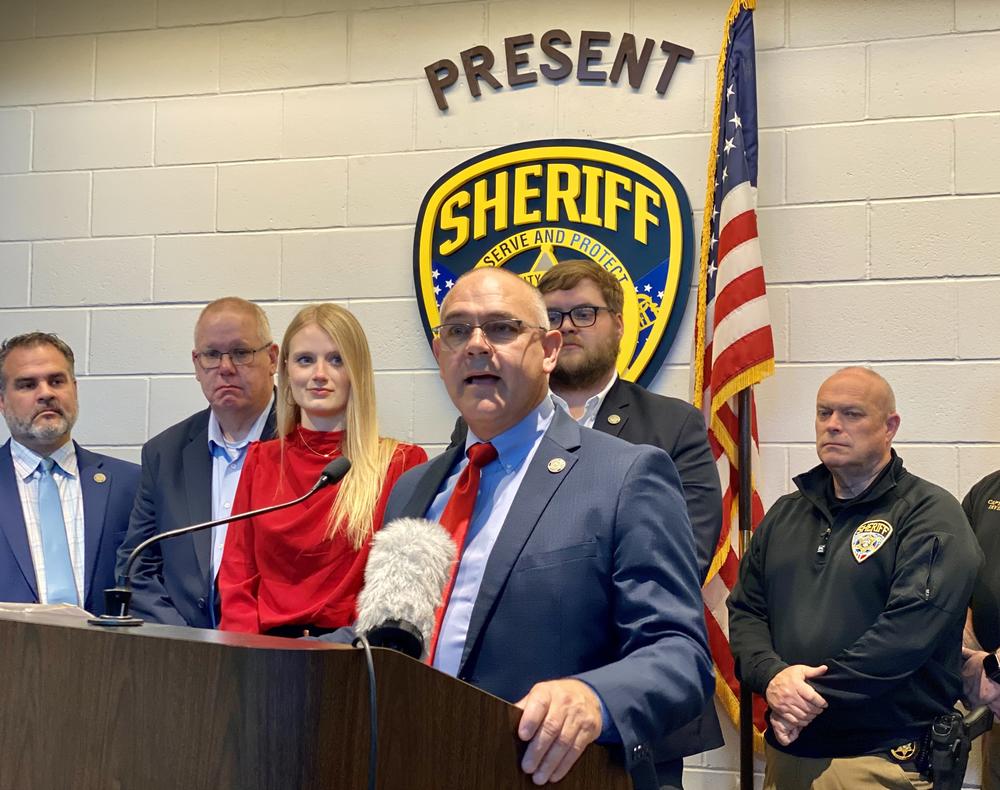
(GA Recorder) — The former director of Black Voices for Trump Harrison William Floyd avoided jail on Tuesday after a Fulton County judge approved a temporary bond order that allows him to publicly comment on the 2020 presidential election racketeering case as long as he does not refer to witnesses or his remaining fourteen co-defendants.
The Fulton County District Attorney’s Office crafted the updated bond order for Floyd following a two-hour court hearing at which prosecutors argued that Floyd’s social media posts violated his bond agreement that prohibited him from communicating about co-defendants and potential witnesses in the high-profile case.
Instead of sending Floyd back to jail on Tuesday, Superior Court Judge Scott McAfee ordered prosecutors and his attorneys to reach a consensus on the new terms of his bond order that will remain in place for the time being.
According to McAfee, Floyd technically violated a bond agreement that prohibited him from communicating about witnesses and co-defendants.
McAfee, however, said that Floyd’s comments on social media didn’t warrant sending him back to jail and instead called for more clarity about what Floyd’s allowed to say about the case on social media and in other public venues.
Floyd spent several days in Atlanta’s Rice Street jail in August after a grand jury indicted him on charges alleging that he, Donald Trump and 17 of their co-defendants illegally conspired to try to reverse Trump’s 2020 election loss to the Democratic presidential nominee Joe Biden in Georgia and several other states.
According to the new court order, Floyd may discuss the case on social media as long as he does not comment about specific witnesses or co-defendants. He is also prohibited from publicly communicating about any witness, co-defendants, or unindicted alleged co-conspirator except in response to something they have said about him.
Former co-defendant Jenna Ellis, an ex-Trump campaign attorney who last month agreed to cooperate with prosecutors in the conspiracy case, was one of Floyd’s recent targets on X, formerly known as Twitter. On Tuesday, prosecutors shared a text message from Ellis stating that she believed Floyd was trying to intimidate her by tagging her account on posts insulting her for coming forward as a state witness.
In addition, Floyd posted on X an emoji of fecal matter in reference to Secretary of State Brad Raffensperger and one of his top officials, Gabriel Sterling. But Sterling testified Tuesday that while he was aware of Floyd’s posts, that as a public figure he didn’t feel threatened by the disparaging remarks.
According to Von DuBose, an attorney for former Fulton election worker Ruby Freeman, Floyd’s several dozen social media attacks against Freeman over the past few weeks contributed to a spike in threats against Freeman. She is expected to testify at an upcoming trial about Floyd allegedly pressuring her to falsely admit to committing voting fraud while counting absentee ballots following the Nov. 3, 2020, general election.
“Freeman’s been listed on death lists,” DuBose said. She’s been told that she needs to leave her house by the FBI so we need to keep an eye on what’s out there.”
District Attorney Fani Willis expressed her concern that Floyd would not be immediately placed behind bars on Tuesday. McAfee indicated that additional changes may be made to the bond order in the next few weeks.
“This defendant is very well aware of what happens when he tweets about this case,” Willis said. “We do not believe it is appropriate for him to make derogatory comments about anyone. He can publicly criticize me all he wants to. I don’t value his opinion.”
Floyd’s attorney John Morrison argued Tuesday that Floyd did not send anyone an email or direct message when he simply tagged their names on X. In addition, the threats referred to by prosecutors were made by people responding to Floyd’s original post.
“These are just people who are expressing their opinions based on his post,” Morrison said. “He has no control over these people.”







